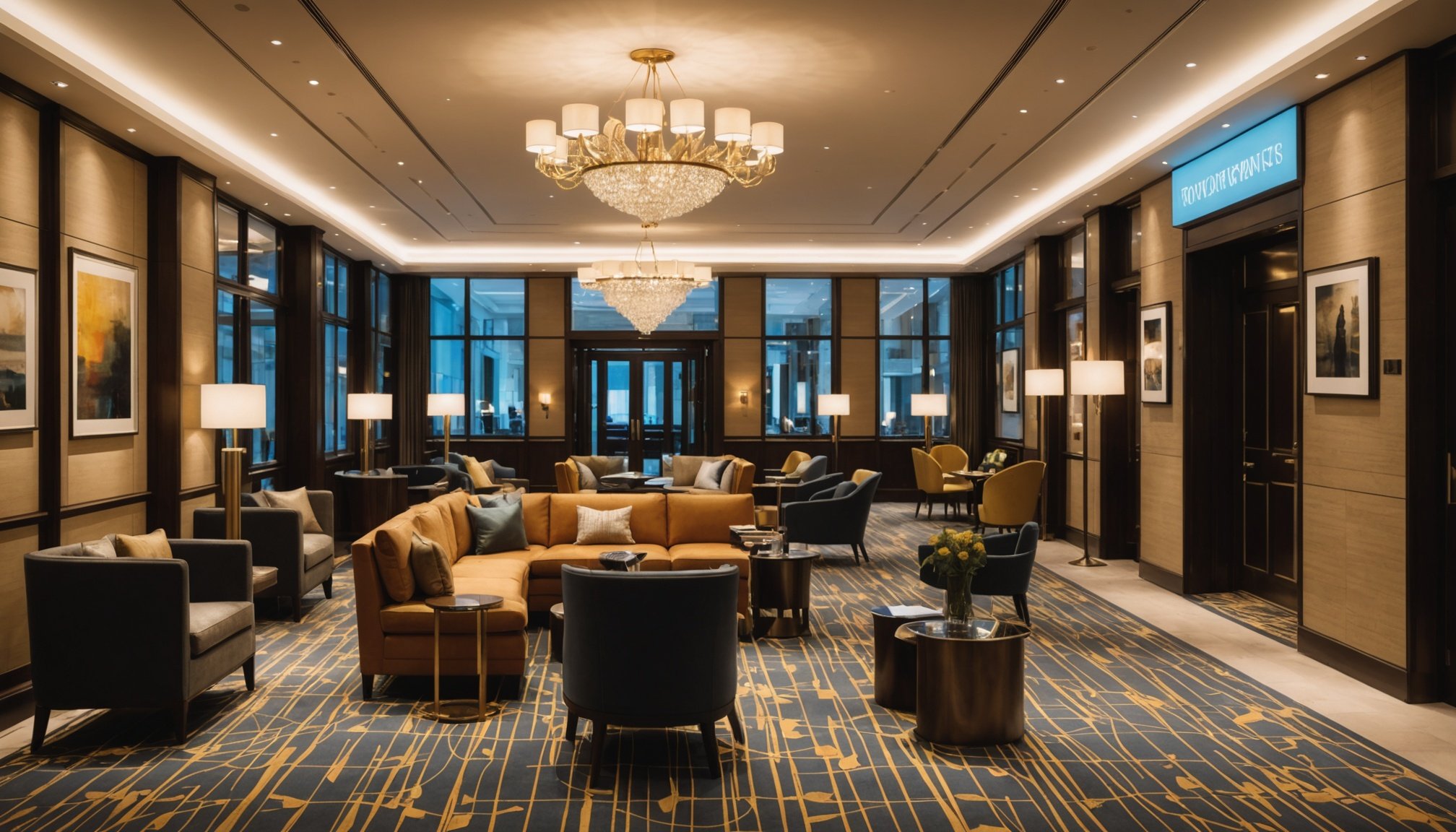Understanding the Current Landscape of Business Travel
The post-pandemic recovery of business travel presents a mixed bag for the hospitality sector. Trends indicate a cautious rebound, with some organizations resuming travel primarily for essential purposes. However, the hospitality industry faces several challenges, including adapting to new traveler expectations and maintaining optimal occupancy rates.
UK hotels, in particular, struggle to attract business travelers amid shifts in work dynamics. With remote work becoming more entrenched, the demand for overnight stays has fluctuated, compelling hoteliers to rethink their service offerings. This shift impacts not just room occupancy but also the ancillary services that rely heavily on business clientele.
Also to read : Boosting Customer Loyalty: Proven Strategies for UK Travel Agencies to Elevate Retention and Success
A significant challenge for the hospitality industry is meeting revamped expectations of business travel experiences. Travellers now seek environments that blend work and leisure, driving hotels to innovate in their service provision. This change necessitates investment in technology and workspace amenities that cater to remote professionals.
Moreover, the impact of widespread remote work has sparked a transformation in business travel trends. Hotels must assess their current offerings and adapt accordingly to capture the business segment’s evolving needs. Those that recognize and act on these trends will likely see increased occupancy and sustained recovery in the coming years.
Also read : Mastering Cash Flow Strategies: Elevate Financial Efficiency for UK Small Businesses
Tailored Amenities for Business Travelers
In today’s landscape, business traveler amenities are becoming essential to attract and retain the corporate clientele. The key lies in providing dedicated workspaces, with well-equipped hotel rooms transforming into versatile environments that support productivity and relaxation. High-quality seating, ample lighting, and ergonomic desks are just the starting points.
Integral to this setup is the provision of high-speed internet and tech-friendly facilities. With the remote work revolution, guests require robust connectivity to maintain seamless communication with their teams. Hotels have increasingly prioritized a stable, speedy Wi-Fi connection as a basic necessity, akin to utilities like water and electricity.
Additionally, other on-site services tailored to business needs have gained importance. Facilities such as conference rooms equipped with the latest audiovisual technology, and readily accessible printing services serve as significant advantages. By creating a comprehensive support environment, hotels not only cater to the immediate requirements of business travellers but also enhance their overall stay experience.
Indeed, the integration of such services positions hotels as enablers of productivity, aligning their offerings with the evolving expectations of the modern business voyager. This foresight into the changing landscape promises to fill occupancy, even as external business travel trends continue to fluctuate.
Innovative Loyalty Programs
In today’s competitive landscape, designing effective hotel loyalty programs is crucial for attracting and retaining business guests. These programs must go beyond traditional reward systems, focusing on personalization and flexibility. By offering tiered benefits and exclusive perks, particularly aligned with corporate needs, hotels can enhance customer engagement and encourage repeat stays.
Case studies from UK hotels illustrate successful strategies. For instance, programs that integrate with major airlines and corporate clients provide added value. Take hotels that partner with airlines to offer seamless travel experiences, combining airfare and accommodation deals for business travellers. This integration not only boosts customer retention but also enhances brand loyalty.
Building partnerships with corporations ensures priority booking and bespoke services, reinforcing hotels’ status as preferred partners. Moreover, leveraging data analytics to monitor business guest preferences helps in tailoring programs that meet specific demands. Such initiatives are pivotal for enhancing loyalty while ensuring guests feel valued and acknowledged.
A comprehensive, innovative approach to loyalty schemes positions hotels as leaders in the hospitality industry. By prioritizing personalized experiences and strategic partnerships, hotels can effectively compete and differentiate themselves, securing their share in an ever-evolving market.
Tech Integration in Hotel Operations
Incorporating technology in hospitality has become indispensable for modern accommodations aiming to enhance overall efficiency and guest satisfaction. Mobile apps serve as revolutionary tools, transforming traditional interactions into seamless experiences. These apps provide guests with convenient options to manage bookings, access personalized services, and receive real-time updates during their stay.
An essential advance in this realm is digital check-in and keyless entry. These features streamline the arrival process, minimizing queuing time and allowing guests to access their rooms via smartphone apps. Such innovations not only improve efficiency but also cater to the evolving expectations for convenience and safety, which have gained prominence post-pandemic.
Moreover, the strategic use of data analytics offers significant advantages in personalizing guest experiences. By harnessing insights from guest preferences and behaviour, hotels can tailor services to meet specific needs, enhancing satisfaction. For instance, curated recommendations and bespoke amenities can be prepared in advance, elevating the level of personalized attention each guest receives.
Overall, aligning operational strategies with technological advancements ensures that hotels not only keep pace with industry standards but also position themselves as frontrunners in delivering seamless, guest-centric experiences. Key innovations in tech thus play a pivotal role in attracting and retaining business travellers amidst dynamic industry trends.
Effective Marketing Strategies
In the competitive realm of the hospitality industry, marketing for hotels is more crucial than ever, especially when targeting business travellers. Creating tailored campaigns specifically aimed at corporate clients can significantly enhance a hotel’s appeal and visibility. These campaigns should highlight the unique features and services that directly cater to the needs of business guests.
Leveraging digital platforms like social media and targeted online advertising allows hotels to reach business-oriented audiences more effectively. Engaging content and promotional offers that capture the corporate traveller’s eye can be pivotal. For instance, showcasing testimonials and case studies provides tangible proof of exceptional service, building trust and credibility among prospective guests.
A strategic approach to marketing involves not only direct advertisements but also partnerships that position the hotel within business circles. Collaborating with travel agencies and corporate event planners ensures the hotel is a preferred choice for business travel arrangements.
Implementing a robust, multi-channel marketing strategy bolsters a hotel’s presence in the business sector, ultimately driving higher occupancy rates and enhancing customer retention. By understanding and addressing the specific expectations of business travellers through these campaigns, hotels can maintain a competitive edge.
Enhancing Customer Experience and Satisfaction
Ensuring exceptional customer experience in hotels is imperative for fostering guest satisfaction and loyalty. Holistic customer service training is the cornerstone of this effort. Training should focus on empathy, adaptability, and problem-solving skills to create a welcoming environment for guests. Staff who can anticipate and respond to diverse guest needs effectively enhance the overall experience.
The practice of collecting and analysing customer feedback is also crucial. By engaging with guests through surveys and digital feedback platforms, hotels can gain valuable insights into guest preferences and pain points. This real-time information allows for proactive improvements in service offerings and facilities. The ability to quickly adapt to feedback not only addresses immediate issues but also builds a reputation for reliability and guest-oriented service.
Creating memorable experiences is key to increasing guest satisfaction. This can be achieved through thoughtful gestures, such as personalized welcome notes or tailored amenities based on guest history. Unique experiences, whether through exclusive local partnerships or bespoke in-hotel events, leave lasting impressions and encourage repeat visits.
By prioritizing customer satisfaction, hotels position themselves as preferred choices for both leisure and business travellers, thus enhancing their overall market position and sustaining business growth.
Competitor Analysis and Differentiation
In the bustling hospitality industry, conducting a thorough competitor analysis is vital for carving out a distinctive market position. By analysing local competitors, hotels can identify areas where they can differentiate their services, enhancing their appeal to both leisure and business guests. Understanding what competitors offer allows hotels to highlight their unique selling propositions (USPs), whether through exceptional customer service, innovative amenities, or exclusive partnerships.
Key to this process is recognising how market positioning impacts occupancy rates and guest loyalty. Successful examples include hotels that have focused on niche markets—a sustainability commitment or luxury experiences tailored to specific traveller segments. These strategic choices have propelled them to the forefront of preferred options for business travellers.
Competitor analysis also uncovers opportunities for service innovation. Hotels can leverage this knowledge to introduce new features that cater directly to evolving guest expectations, thus staying ahead in a competitive landscape. By taking the time to assess and understand competitors’ strengths and weaknesses, hotels can refine their offerings, ensuring they remain both relevant and competitive.
Hotels must embrace dynamic positioning strategies, continuously adapting to changes in market trends and consumer needs, ensuring long-term success in a continually evolving industry.
Adapting to Evolving Traveler Needs
The landscape of business travel continues to evolve post-COVID, with shifts in business traveler preferences dictating new strategies for the hospitality industry. For hotels, adjusting to these trends is essential to maintain relevance and competitiveness. Today’s business travellers desire more than just a bed; they seek environments that accommodate hybrid lifestyles combining work and leisure seamlessly.
Collecting and analysing customer feedback have become pivotal tools in understanding these changing preferences. Through feedback, hotels can gauge what aspects of their services need improvement and what travellers value most. This data-driven approach is crucial for tailoring service offerings to meet the specific desires of modern corporate guests.
Insights from guest feedback allow hotels to enhance their services continually, ensuring a holistic experience for all visitors. For example, if a trend emerges favouring eco-friendly initiatives, hotels can incorporate sustainable practices into their operations, thus appealing to environmentally conscious travellers.
Ultimately, hotels that listen to and act on customer insights position themselves to meet and exceed the evolving expectations of business travellers. This not only boosts guest satisfaction but also encourages loyalty and repeat visits, forming a robust foundation for long-term success in the competitive hospitality sector.
Regional and Seasonal Adjustments
Adapting to regional market trends and seasonal strategies is crucial for hotels aiming to capture the business travel segment effectively. Recognizing regional demand fluctuations allows hotels to tailor their service offerings and marketing efforts in line with local business activities and travel patterns. For instance, regions with a booming tech industry may experience high business travel during major industry events, requiring hotels to adjust their capacities and offers.
Seasonal promotions offer another layer of strategic adaptation. Business travel seasons often align with fiscal quarters or industry-specific peak periods. Hotels launching targeted promotions during these times can maximise occupancy and revenue, particularly when offering packages that combine accommodation with relevant conference or event entry. Such promotions often include perks like discounted rates for extended stays, complimentary access to meeting rooms, or transport services.
The role of local events and conferences can significantly enhance hotel strategy. Establishing partnerships with event organisers creates a symbiotic relationship where both parties promote each other’s services. By understanding and integrating into the local business ecosystem, hotels can anticipate and effectively cater to the influx of business travellers, aligning their opportunities with market demand to stay competitive.











